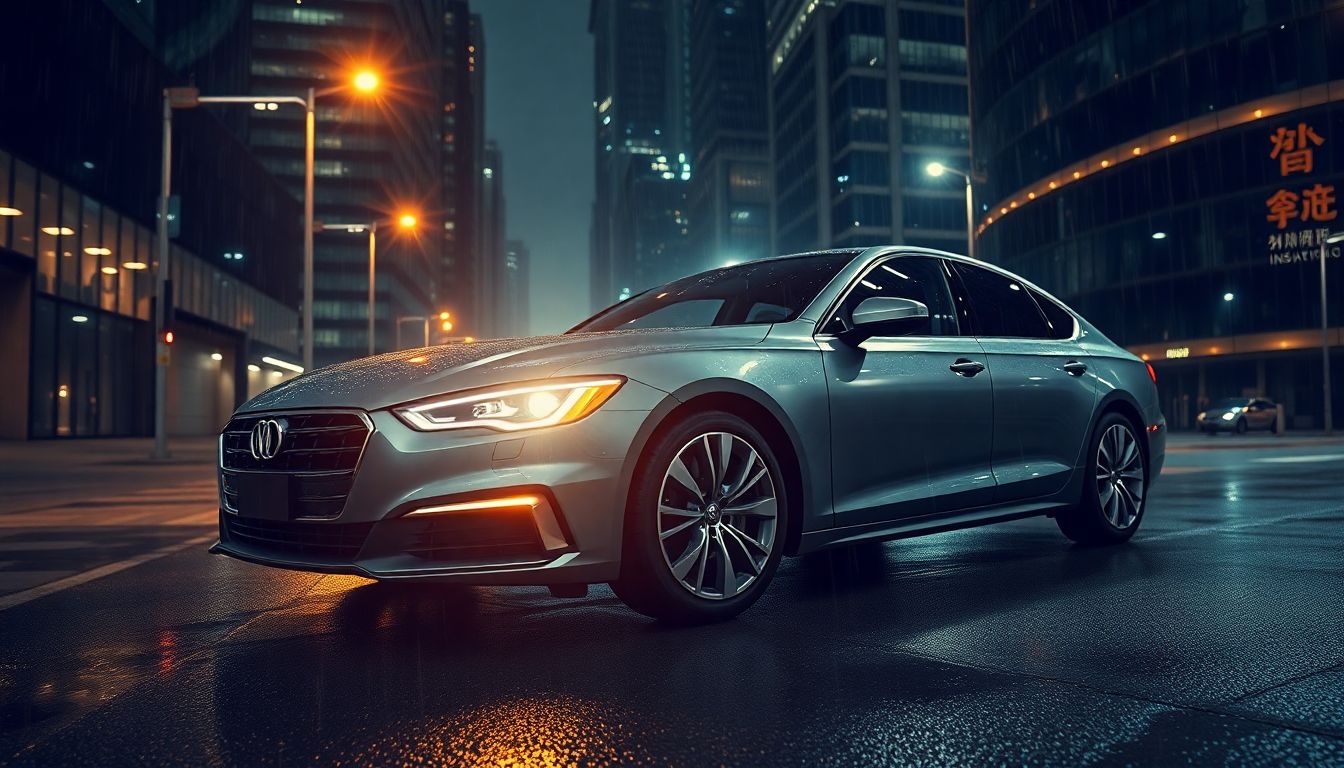Imagine waking up to the sight of a tree on top of your car after a storm. Ouch! Comprehensive car insurance helps with damage caused by things such as that, and not just accidents. It covers a range of things that could spring an unexpected problem. So it’s pretty much more than just basic coverage. It is expected of this article to sufficiently enlighten you about comprehensive car insurance and why it matters.
Understanding Comprehensive Car Insurance
Comprehensive car insurance basically pays for damage to your car from things other than impacts with another car. Think of it as a secondary safety net for those “what if” occasions. When the unexpected happens, this insurance can land you safety.
What It Covers
There are so many things that it covers under comprehensive insurance. It can protect you from theft, for the case someone steals your car, this coverage could help in replacing it. Vandalism is also covered. Scratching up the surface of the car window, spray painting it? Comprehensive insurance can come to the rescue.
Fire is another peril it covers. Car fire can be so troublesome. This insurance is your cover. Natural disasters are troublesome, too: hail, floods, and earthquakes. In most cases, it’ll cover that too if a tree falls on your car. And lastly, hitting animals is also covered. A deer does a lot of damage.
What Is Not Covered by Comprehensive Insurance
But because it’s named “comprehensive,” it should also come with something called “exclusions.” Collision with another vehicle is generally excluded. Collision is where collision coverage fits in. Also, breakdowns that result from wear and tear aren’t covered; if your engine goes belly up, this insurance will provide you no assistance. Damage resulting from wear and tear is also excluded. No, it won’t pay for your new tires. And damages from racing won’t be covered. Don’t take that for granted on the racetrack.
Is Comprehensive Coverage Mandatory by Law?
Most states wouldn’t require you to carry comprehensive coverage. However, there is a catch: If you are financing the car or leasing it, it will likely be a requirement from the lender to protect their own investment. Also, even if there are no legal obligations, you should consider it.
Advantages of Comprehensive Car Insurance
Comprehensive car insurance has many advantages. It protects you in times when things go south.
Financial Protection Against Unforeseen Incidents
Say a hailstorm wreaked havoc on your car. Repairing it would probably cost thousands of dollars. In the absence of comprehensive coverage, you’d have to pay that amount from your pocket. A comprehensive policy helps pay for the cost of repairing the car. In other words, it shields you against a large, surprise bill, which can truly help ease your finances.
Peace of Mind
Most people find peace of mind in their comprehensive coverage situation. Worrying about things that may occur becomes less likely. It’s alright if something bad happens because of the coverage. Many people would say that peace of mind is worth a great deal.
Coverage Beyond Collision
Collision insurance is primarily for accidents involving another vehicle or object. Comprehensive coverage is even more expansive. Full-cover incident scenarios involve things collision won’t cover. This level of coverage will keep you much safer since it covers theft and vandalism as well as weather-related damage.
The Factors that Affect Comprehensive Insurance Rate
A variety of factors are taken into consideration in determining the comprehensive insurance price. The car that you drive matters, while your location also plays a role. Even the cost of your deductible might seem to be a contributing factor to your premium pricing.
Vehicle Type and Value
Expensive cars usually cost more to insure; a luxury car is more costly to repair or replace. However, the make and model also matter. Some cars are stolen more often than others, and your premium may depend upon the rate in which cars are reported stolen in your area.
Deductible Amount
A deductible is an amount you pay out of pocket for a loss before your insurance pays for the rest. Generally, a higher deductible lowers your premium. Therefore, choose a lower deductible if you prefer to pay higher premiums, but don’t pick a deductible amount if you cannot afford it.
Location
Wherever you stay, your insurance rates get affected. If you stay in an area with high crime, your premiums will also go higher. Areas prone to severe weather usually have higher rates on average compared to other low-risk areas. Insurance companies therefore will consider these risks during pricing.
How to Choose the Right Comprehensive Coverage
Choosing the right comprehensive coverage can be a bit involved. You will need to weigh your risks against your needs. Quoting is also crucial. Know what it is that the policy encompasses.
Assess Your Needs and Risks
What are your specific risks? For example, are storms frequent in your area? Does your car stay parked on the streets for long hours? Despite all these considerations, the value of your vehicle also counts. Comprehensive coverage may be an option if that vehicle is new or costly. Review your circumstances to consider whether it would make sense for you.
Compare Quotes from Multiple Insurers
Do not just settle for the first quote. Go shopping and compare quotes across other insurance companies; the prices can vary–sometimes by a great deal. Be sure you are comparing identical levels of coverage. Also compare deductibles.
Conclusion
Comprehensive insurance is that protection which is so important. It is more than just simple insurance. It protects you against all kinds of eventualities. Knowing your options are very important for choosing the right policy for peace of mind. Never put off what you can do right now. Comprehensive car insurance means the difference between adequate protection for vehicular owners.




